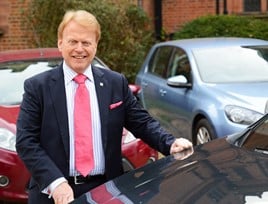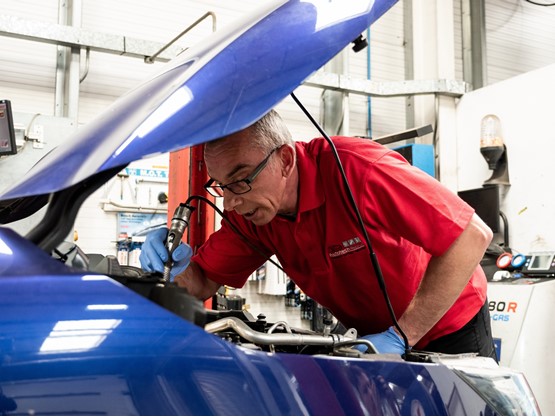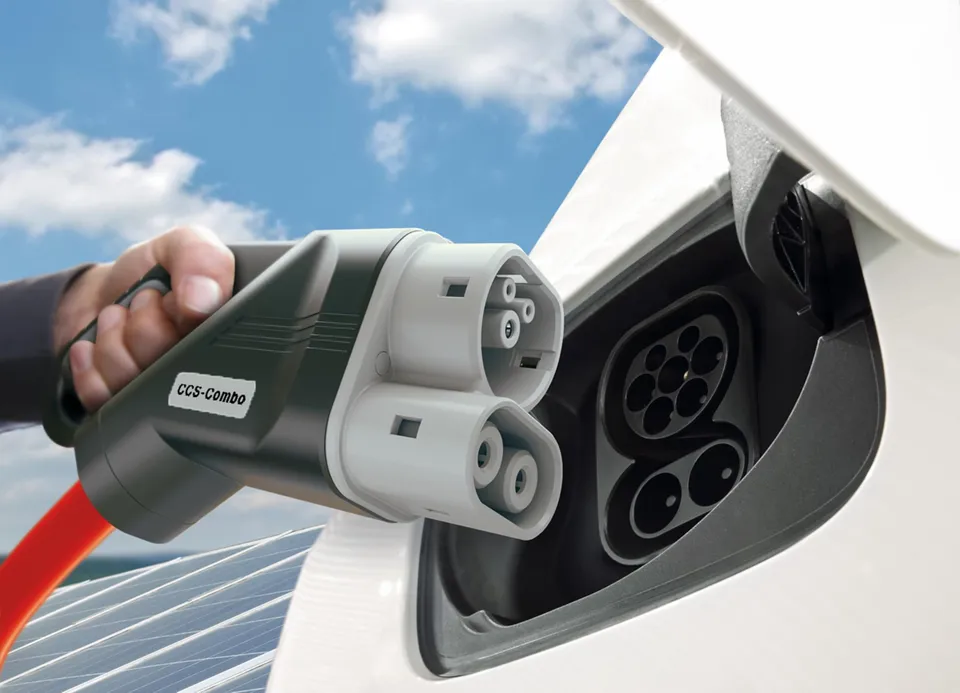The Institute of the Motor Industry (IMI) is calling for urgent funding and a national workforce development strategy from the Government if there are to be enough trained technicians to support a 2030 ban on new diesel, petrol and hybrid vehicles.
The IMI said just 5% of current garages and dealerships are appropriately qualified to work on electric vehicles (EVs).
IMI chief executive Steve Nash and newly-appointed president Jim Saker both made the additionally important point that without the proper training, servicing electric vehicles risks “serious injury or death”.
In an open letter sent to the Government, Nash (pictured) and Saker said: “We urgently need a concerted, ongoing workforce development strategy.
“Embattled employers need support and incentives to get more of their technicians trained, and to re-ignite recruitment and apprenticeship plans.
 “Electric is the right choice – for the environment, for jobs, for our children’s futures. But like all revolutions, this one requires fuel. The fuel of skills. We have a generation that’s wondering just where their future might lie.”
“Electric is the right choice – for the environment, for jobs, for our children’s futures. But like all revolutions, this one requires fuel. The fuel of skills. We have a generation that’s wondering just where their future might lie.”
Demand for the latest battery electric vehicles (BEV) surged by 228.8% in November 2020, with 4,652 registered in that month alone, while the market for plug-in hybrids rose by 34.8%, according to data from the Society of Motor Manufacturers and Traders (SMMT).
The IMI’s estimates show there are between 13,000 and 20,000 technicians currently working on around 380,000 plug-in cars and vans.
If EV sales are to scale up over the next 10 years, the IMI said the technician capacity simply isn’t there to support the transition the Government is aiming for.
According to IMI data, around 6,500 certificates for working on EVs were issued last year, which would have been a pace that met the minimum number of qualified technicians needed by 2030.
However, in Q2 2020 certification numbers were down 85% compared to the same period in 2019.
Gavin White, chief executive at The Autotech Group, which offers EV technician training, said the industry is already past the point of hoping that a renewed focus on upskilling can manage with the current rate of EV adoption.
He said enquiries for EVs rose by 500% in the week following the news of the 2030 ban on petrol and diesel vehicle sales.
 White said: “While there is sufficient training readily available to make vehicle technicians at the very least electric and hybrid aware, it isn’t regulated by the Government.
White said: “While there is sufficient training readily available to make vehicle technicians at the very least electric and hybrid aware, it isn’t regulated by the Government.
“This lack of enforcement means that many organisations are largely unwilling to send their employees on training courses for even a day, due to the loss of revenue through empty servicing bays and MoT ramps.”
However, White said that many employers don’t realise they will be liable if untrained employees are injured while working on high-voltage vehicles.
He said: “Ultimately, if technicians remain inadequately trained, it will only be a question of time before somebody, without the right knowledge, puts a spanner in a high voltage area.”
This article first appeared in the February AM magazine, available here in digital format.
In accordance with the Electricity at Work regulations, enforced by the Health & Safety Executive (HSE) all employers have a responsibility to ensure that employees are adequately trained.
Autotech will be offering training from basic awareness to Level 3 IMI-accredited EV courses, from within its Milton Keynes headquarters from January 2021, complete with an EV to deliver hands-on learning.
By the end of 2021, every contractor working full time within Autotech Recruit’s network of temporary vehicle technicians and MoT testers will be trained to a minimum Level 2 Hybrid and Electric Vehicle IMI standard.
 White said: “We have already seen an uplift in the number of enquiries for temporary vehicle technicians trained to service EVs.
White said: “We have already seen an uplift in the number of enquiries for temporary vehicle technicians trained to service EVs.
“This is a big commitment from us in terms of investment, but we are dedicated to safeguarding our contractors and creating a strong, fully skilled network to support the entire industry.”
















Login to comment
Comments
No comments have been made yet.